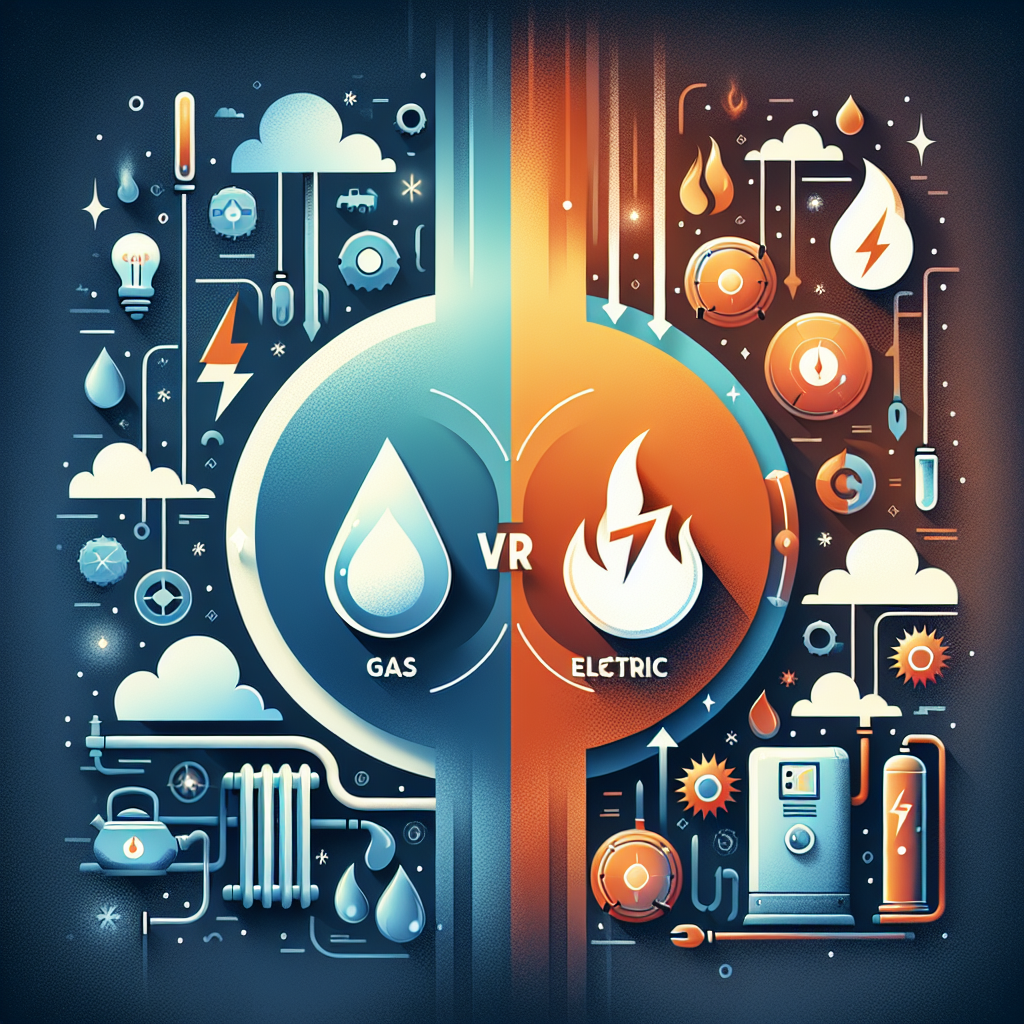When it comes to heating your home, the choice between gas and electric heating systems can be overwhelming. With various factors to consider, including cost, efficiency, and environmental impact, it’s essential to make an informed decision. In this guide, we’ll explore the key differences between gas and electric heating to help you choose the best option for your needs.
Understanding Gas Heating
What is Gas Heating?
Gas heating systems use natural gas or propane to generate heat. These systems commonly include furnaces and boilers, which effectively provide warmth to your home through ducts or pipes.
Advantages of Gas Heating
- Cost-Effective: Generally, natural gas tends to be cheaper than electricity in many regions, which can result in lower monthly utility bills.
- Efficiency: Gas heating systems often have higher efficiency ratings, meaning they can heat your home faster compared to electric systems.
- Reliable Performance: In many areas, gas heating remains unaffected during power outages, keeping your home warm even when the electricity goes out.
Disadvantages of Gas Heating
- Installation Costs: Installing a gas heating system can be more expensive, especially if your home doesn’t already have gas lines.
- Safety Concerns: Gas leaks and carbon monoxide poisoning are significant risks associated with gas heating, requiring safety checks and proper maintenance.
- Environmental Impact: Natural gas, while cleaner than coal, still contributes to greenhouse gas emissions.
Exploring Electric Heating
What is Electric Heating?
Electric heating systems utilize electric energy to generate heat. These can include electric furnaces, baseboard heaters, and heat pumps, which are designed to distribute warmth throughout your home.
Advantages of Electric Heating
- Lower Initial Costs: Electric heating systems are often cheaper and easier to install since they don’t require gas lines or ventilation systems.
- Safer Operation: Electric systems eliminate the risks associated with gas leaks and carbon monoxide, making them a safer option for homes with young children or pets.
- Eco-Friendly Options: With the growing availability of renewable energy sources, electric heating can be more environmentally friendly, especially when powered by solar or wind energy.
Disadvantages of Electric Heating
- Higher Operating Costs: In many regions, electricity is more expensive than natural gas, potentially leading to higher utility bills.
- Less Efficient Heating: Electric heating often takes longer to warm up a space compared to gas systems, which may not be ideal in colder climates.
- Power Dependency: Unlike gas heating, electric systems depend on a steady power supply. During outages, your home may become uncomfortably cold.
Comparing Costs: Initial Investment vs. Long-term Savings
When choosing between gas and electric heating, you’ll want to consider both the initial installation costs and the long-term savings. Here’s a breakdown of what to expect:
Initial Costs
- Gas Heating: The costs can range from $2,500 to over $5,000, depending on the complexity of the installation and existing ductwork.
- Electric Heating: In contrast, electric heating systems usually cost between $1,500 and $3,000.
Long-term Savings
- Gas Rates: Depending on your local energy prices, you may find that gas heating saves you more money over time, especially in colder areas.
- Energy Efficiency: Look for the Energy Efficiency Ratio (EER) ratings for HVAC systems. A more efficient system can lead to lower utility bills, regardless of the energy source used.
Factors to Consider Before Making a Decision
- Climate Zone: Consider your local climate. Gas heating may be more efficient in colder regions, while electric could be sufficient in milder areas.
- Availability of Resources: Not all homes have access to natural gas; in some areas, electric systems may be the only or best option.
- Environmental Impact: If you’re focused on sustainability, evaluate how each heating option fits into your overall green living goals.
- Future Needs: Think about your future home plans. If you anticipate expanding your family or home, ensure the heating system you choose can handle increased demand.
Conclusion: Finding the Right Heating Solution for You
Choosing between gas and electric heating is a significant decision that requires careful consideration of various factors. By weighing the pros and cons of each option — including cost, efficiency, safety, and environmental impact — you can make a well-informed choice suited to your lifestyle and home.
Whether you opt for the reliable warmth of gas or the safe convenience of electric heat, ensuring your home is comfortable and energy-efficient is what truly matters. For personalized advice tailored to your specific situation, consider consulting with a heating professional who can assess your home and help guide your decision-making process. Remember, the right heating system is not just about warmth; it’s about peace of mind.


